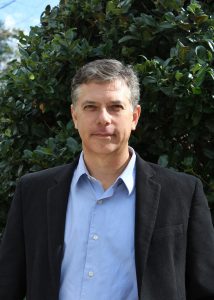By Adam Jones
Dr. Douglas Gibler, professor and political science researcher at The University of Alabama Institute for Social Science Research, recently was awarded two grants from the National Science Foundation.
Both grants, totaling $800,000 over three years, ultimately will help understanding of international conflict, one producing a method, the other producing a data set, he said.

Each grant will fund two to three graduate students and up to seven undergraduate students each year to work on the projects, Gilber said.
One grant awarded in July will study international conflicts and their causes, which could help policymakers and political scientists better predict the outcomes of high-stakes, international bargaining.
International conflicts are similar to a game of poker, full of bargaining, aggression and bluffs. Unlike poker where players vie for the pile of chips, scholars are not always sure why countries in a conflict are even at the table.
“Conflicts are incredibly rare, so it’s important to know what states fight over and which issues are more difficult to resolve,” Gibler said.
Gibler will work with his former graduate student from UA, Dr. Steven Miller, now an assistant professor of political science at Clemson University.
The two will use a database they developed and extended of about 2,300 international conflicts and near-conflicts from 1816 to 2010, marking each issue between the states and how positions on the issues change over the course of the conflict.
The data should show broad trends in international bargaining, possibly pointing to ways to avoid conflicts in certain situations or lessen the length of conflicts through understanding the evolution of ongoing demands by two engaged states.
While history of a conflict can show the build-up to a conflict, or a resolved disagreement, there is not good data on the types of issues that lead to a fight. Gibler hopes this work can fill in that gap.
“We are testing the bargaining theory of, do states’ demands change over time within the conflict?” he said.
Related to this project is another NSF-funded study to help in devising methods for studying the events through development of a statistical model to overcome traditional problems of data analysis of events. The developed method should have applications beyond political science into a range of social sciences, Gibler said.
